Search Results
Showing results 141 to 160 of 176
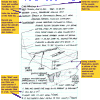
Keeping a Field Journal
Source Institutions
In this activity, learners start their own field journal to better understand the wildlife in their area.
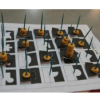
Fruity-Glows: Pictures of Health on a Microarray Canvas
Source Institutions
In this activity (page 12), learners apply the concepts of pixilation and pointillism to the world of biomedical science.
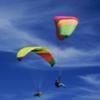
Playing with Parachutes
Source Institutions
In this activity, learners explore how parachutes are used to slow down moving objects. Learners work in teams of "engineers" to design and build their own parachutes out of everyday items.
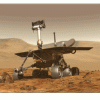
Design a Lunar Rover!
Source Institutions
In this team design challenge (page 2-10 of PDF), learners design and build a model of a Lunar Transport Rover that will carry equipment and people on the surface of the Moon.
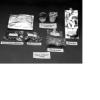
Ripening of Fruits and Vegetables
Source Institutions
In this activity, learners test the rate of ripening fruit and vegetables and use a chemical to inhibit the ripening process.
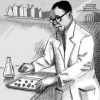
Forgotten Genius
Source Institutions
This series of chemistry stations is designed to accompany the PBS documentary about African-American chemist "Percy Julian: Forgotten Genius." Each of the six stations features either a chemical or p
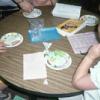
Plant Parts and Their Diseases
Source Institutions
This exercise is designed to teach young learners the different parts of a plant (root, stems, leaves, flowers, fruit, and seeds), the basic functions of each part, and to show that tiny microscopic o
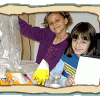
If Trash Could Talk
Source Institutions
Ancient trash tells archaeologists a lot about the past. In this activity, learners take a close look inside their trash can and think about the clues it offers about their lives.
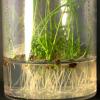
Plant Tissue Culture: Classroom Activities in Plant Biotechnology
Source Institutions
In this activity related to plant biotechnology, learners use the tissue culture process to rapidly produce clones (genetic copies) of a particular plant (cauliflower, rose cuttings, African violet le
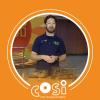
Make a Museum Collection at Home
Source Institutions
In this activity, learners will create their own museum collection using their favorite toys, drawings, or collection.
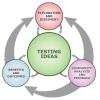
Poking Around: Having Students Experience the Real Process of Science
Source Institutions
Using indirect methods, learners determine the shape and size of a piece of carpet hidden under a piece of plywood.
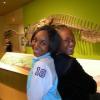
Bone Identification
Source Institutions
This activity (page 3 of the PDF under SciGirls Activity: Dinosaurs) is a full inquiry investigation into fossil hunting and identification.
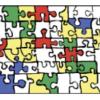
Finding a Gene on the Chromosome Map
Source Institutions
In this activity, learners use pedigree and jigsaw puzzles to explore how scientists use genetic information from a family to identify a gene associated with a genetic disorder.
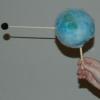
Exploring Strange New Worlds
Source Institutions
This fun and simple hands-on astronomy activity lets learners explore model planets (that they or an educator will create), using methods NASA scientists use to explore our Solar System.

Whose Fault Is It?
Source Institutions
In this seismic simulation, learners play a "who-dunnit" game to explore earthquakes.
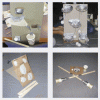
Get-Moving Game
Source Institutions
In this invention challenge activity, learners create an indoor game for one or two people that gets you moving.
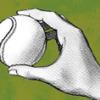
Helping Hand
Source Institutions
In this invention challenge activity, learners see how many objects they can grab with a homemade "bionic" arm.
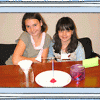
Make Your Own Weather Station
Source Institutions
This three-part activity shows learners how to build three meteorology tools: a wind vane, a rain gauge, and a barometer.
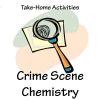
Plaster Casts
Source Institutions
In this activity, learners combine two substances (plaster of Paris and water) to make a cast of an object's imprint in clay.
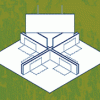
Four Corners
Source Institutions
In this design challenge activity, learners build a machine out of cardboard that runs smoothly and dependably. Learners must be precise to make sure their component works properly.
